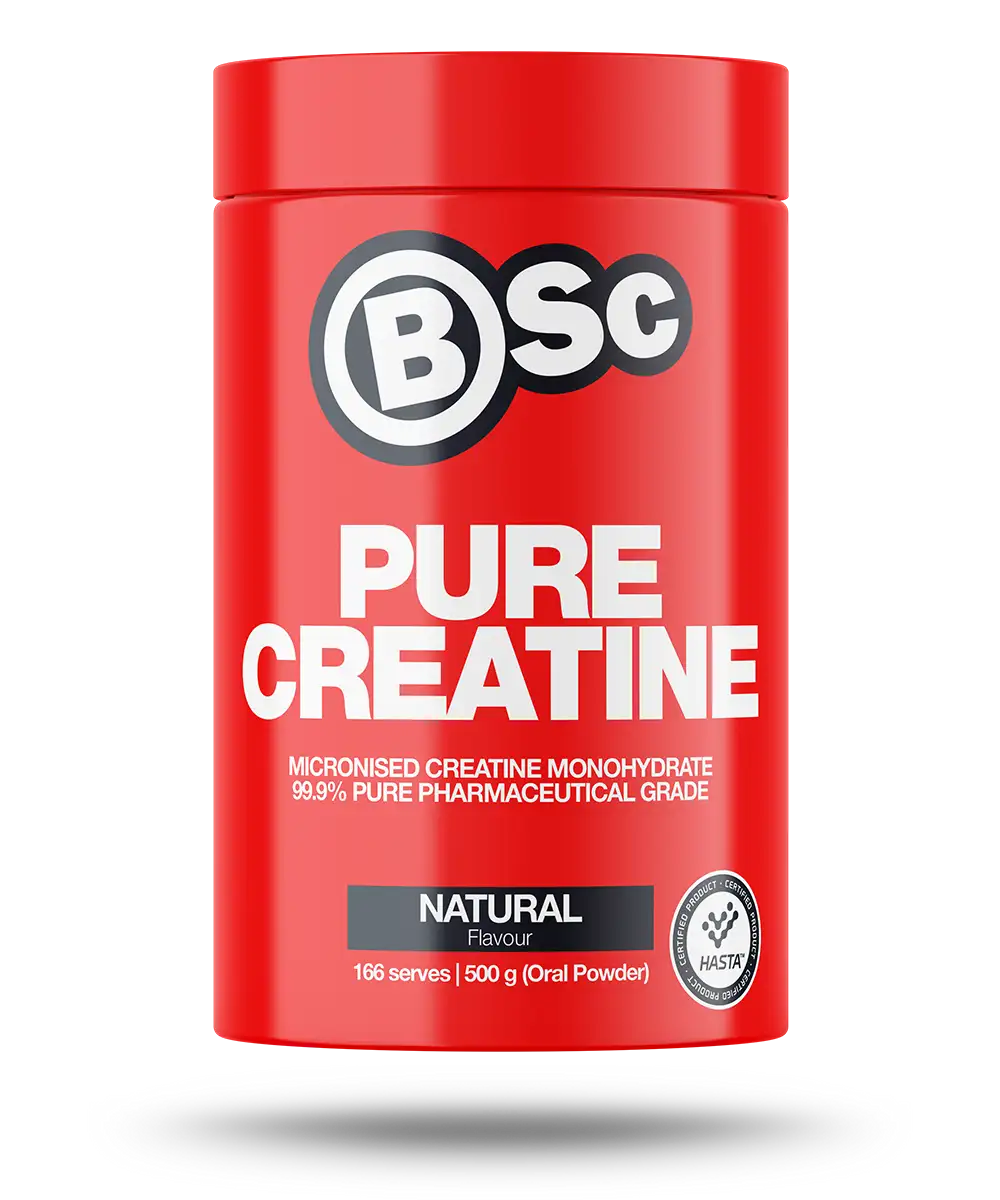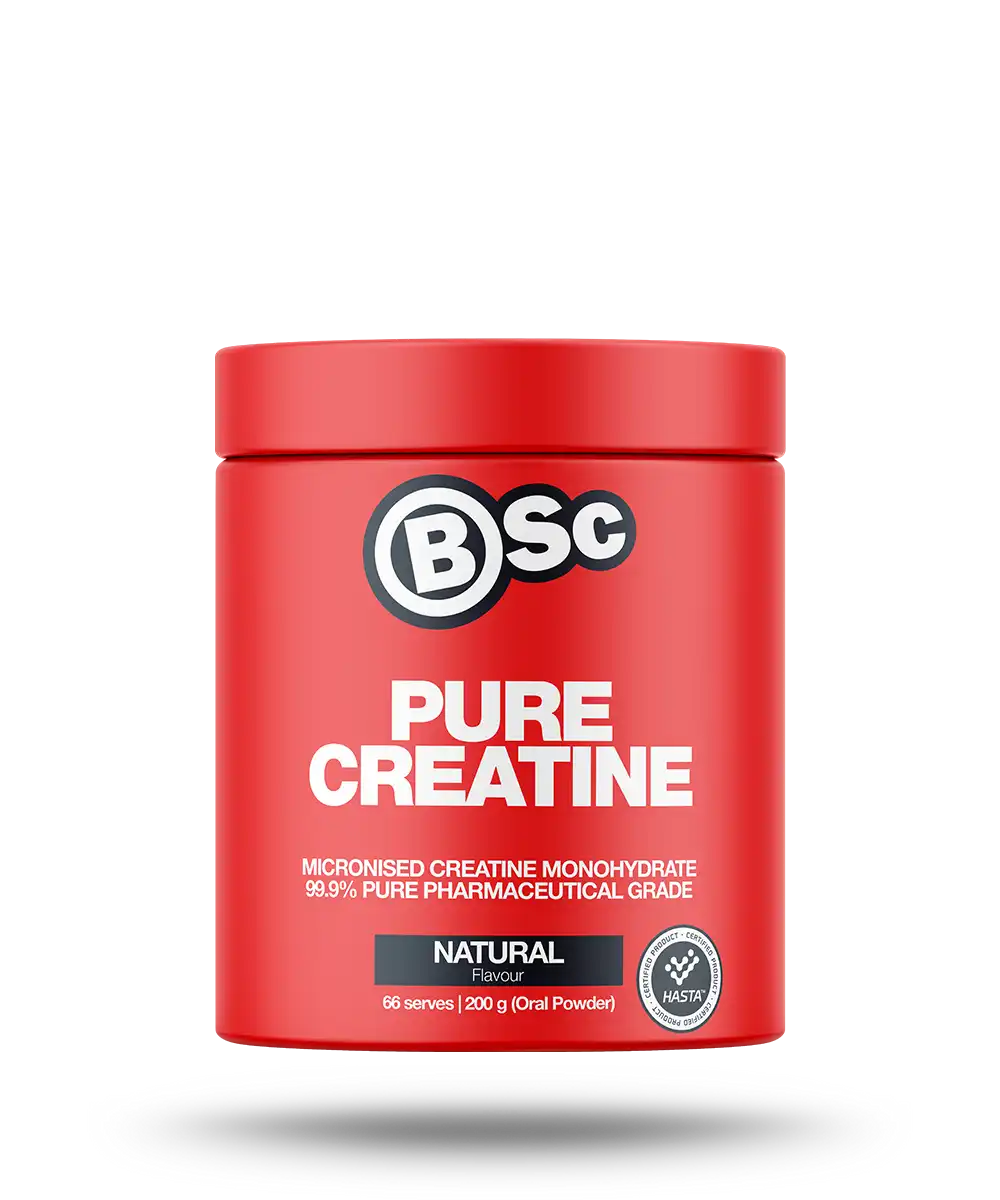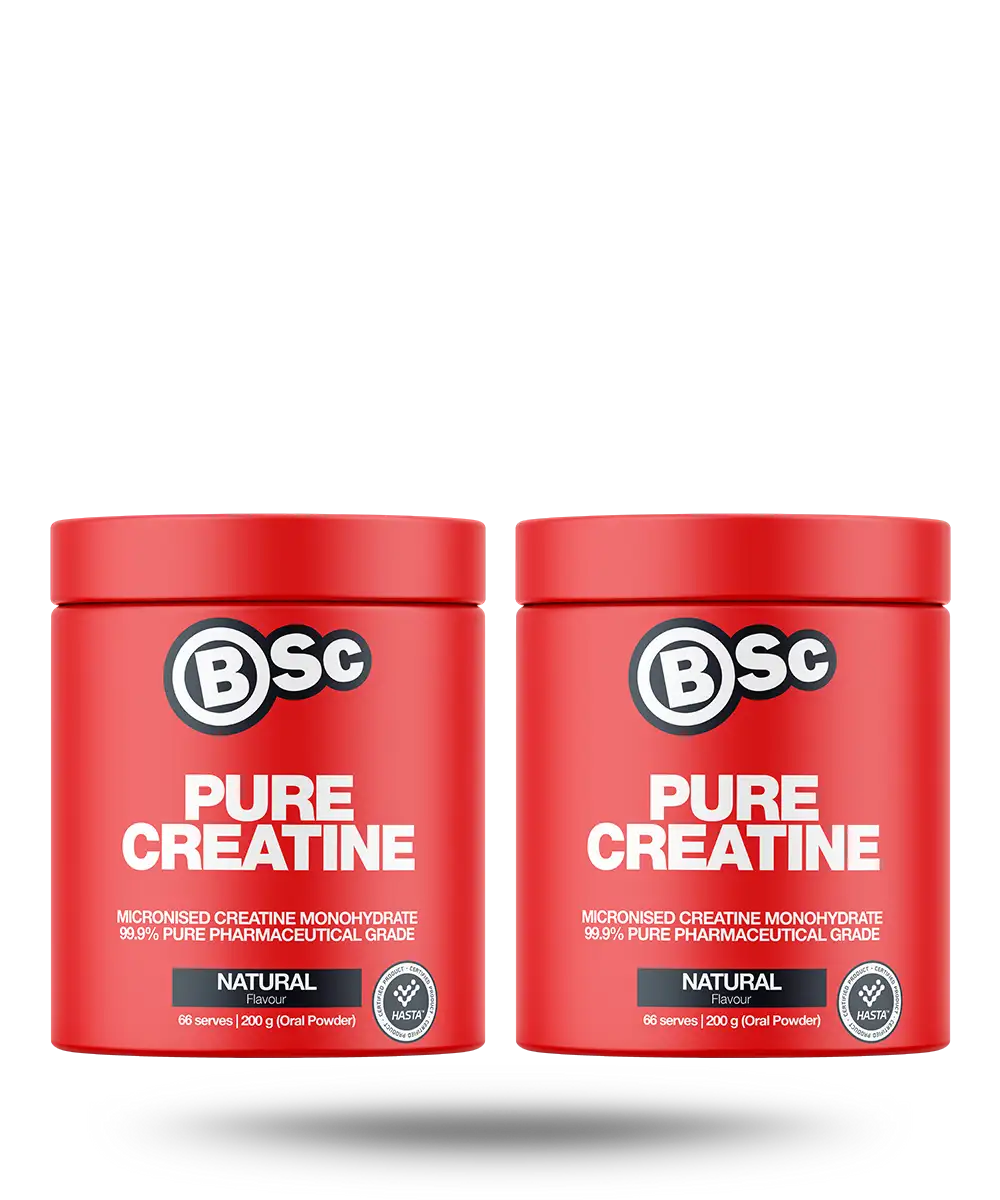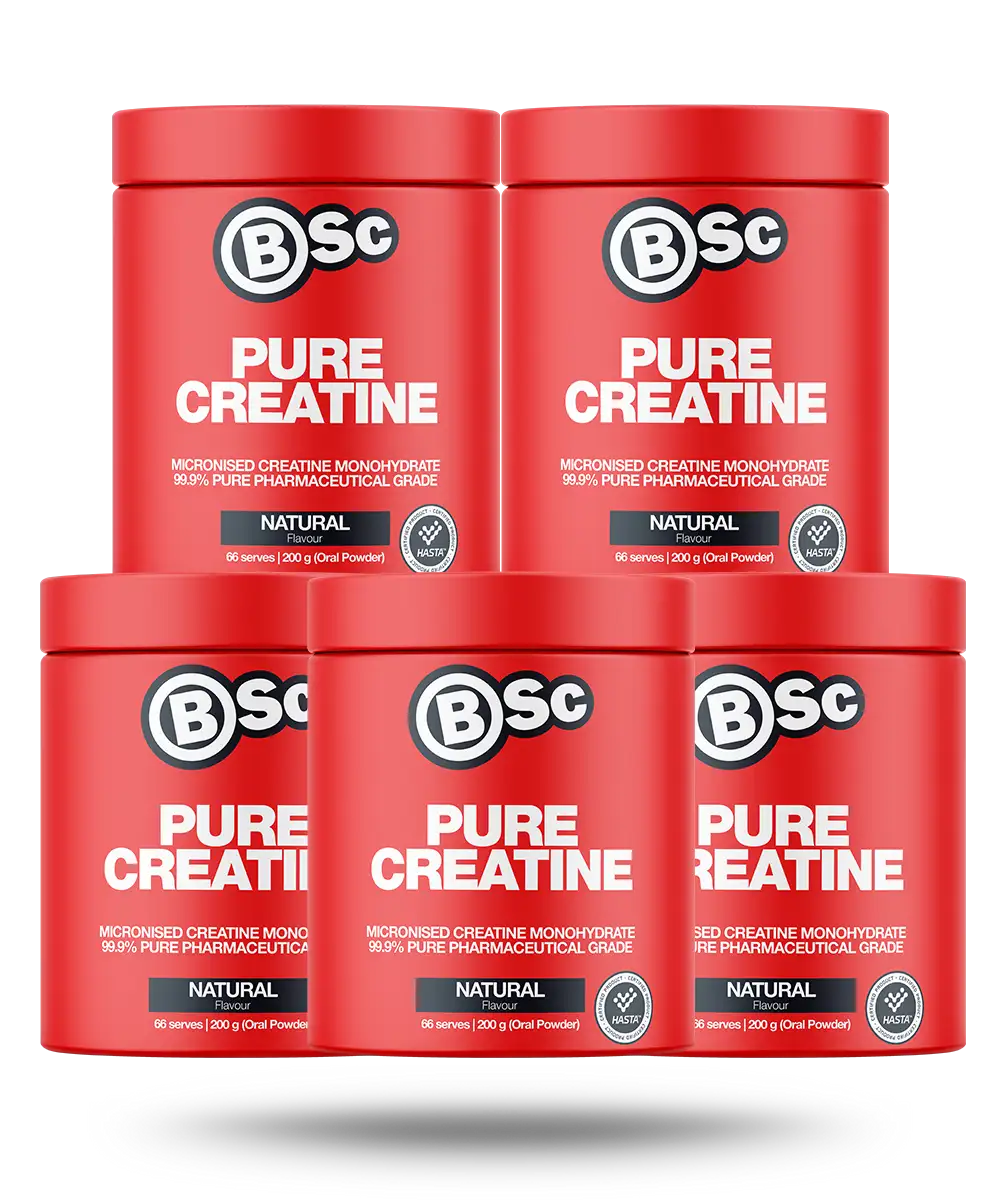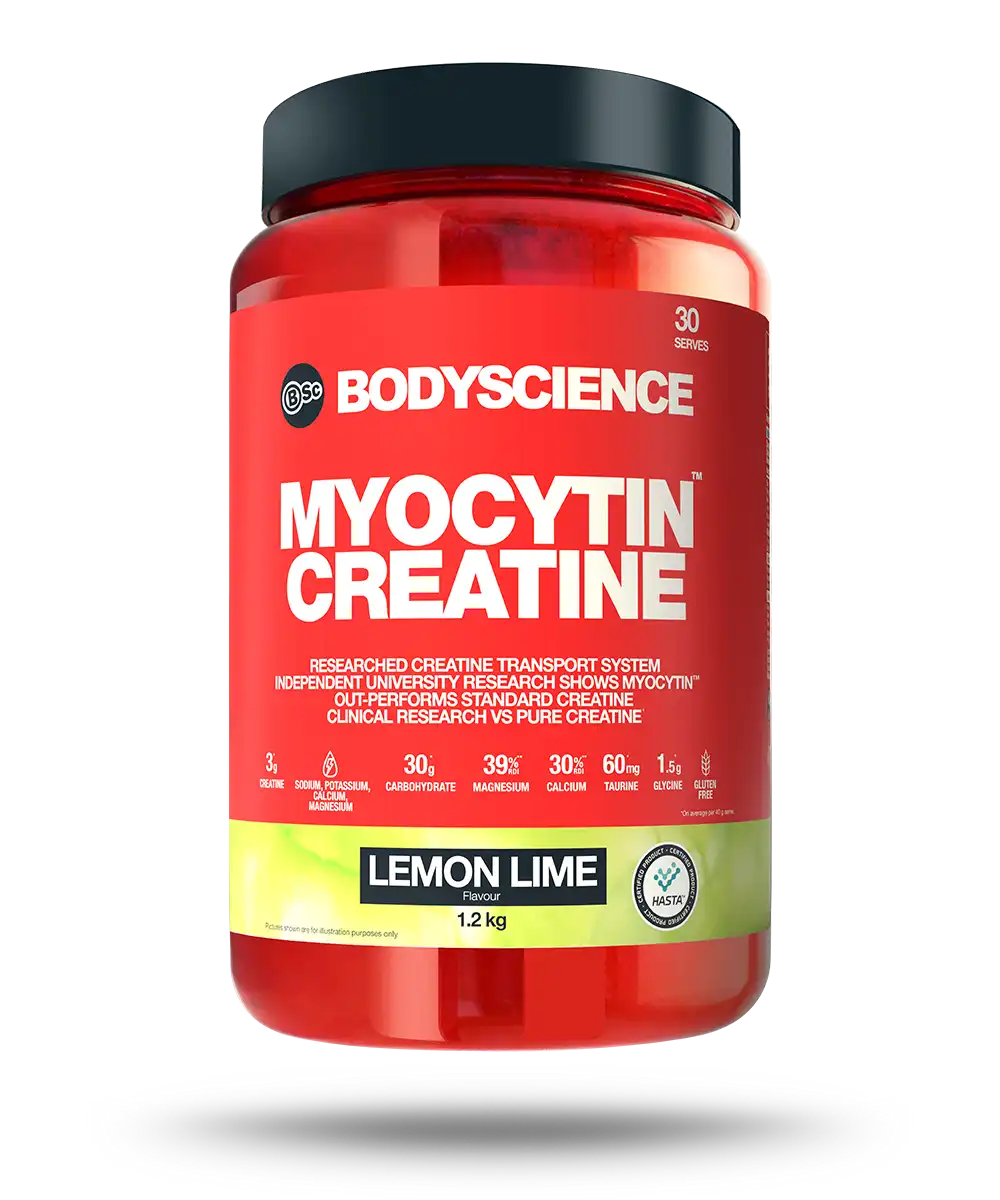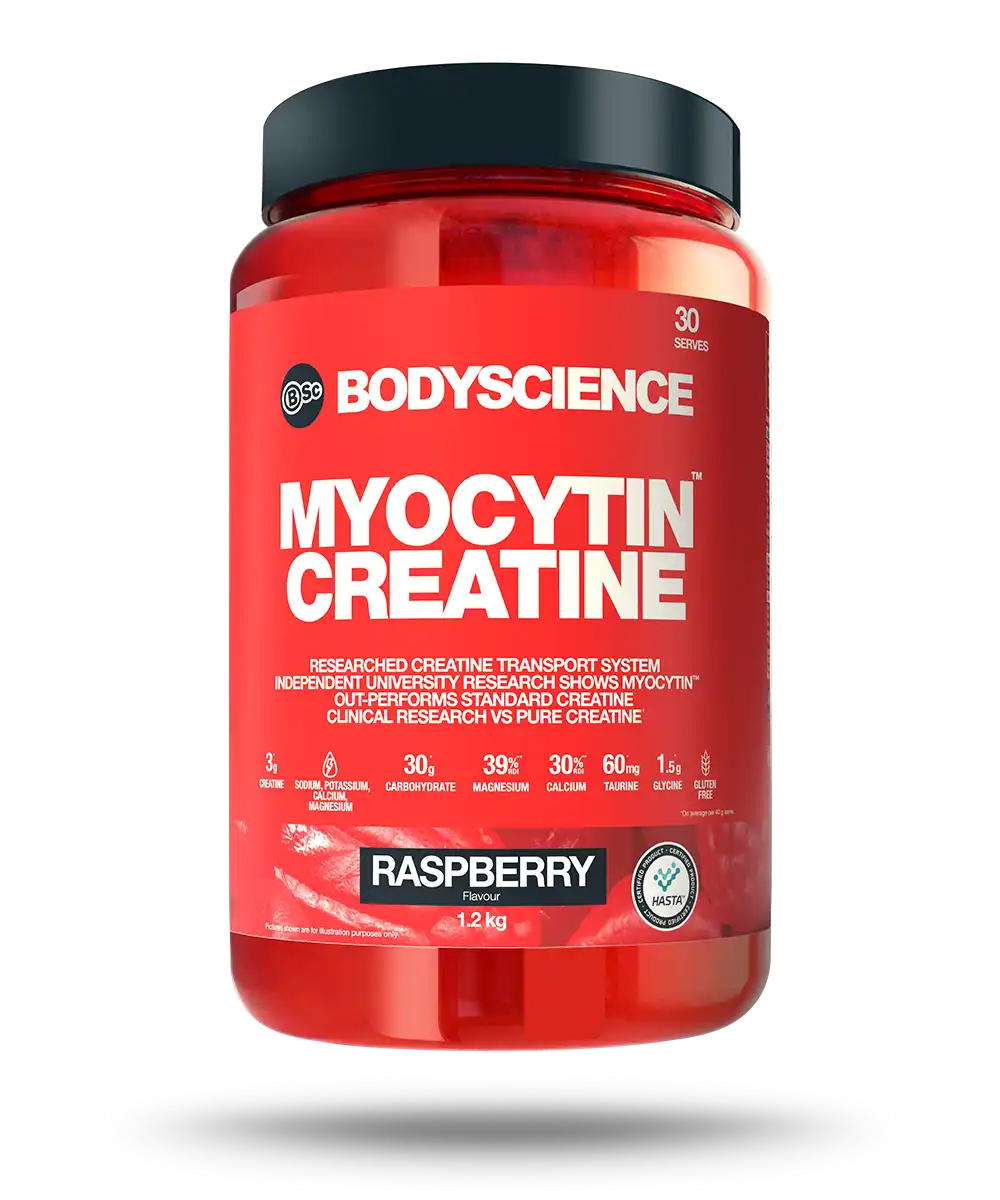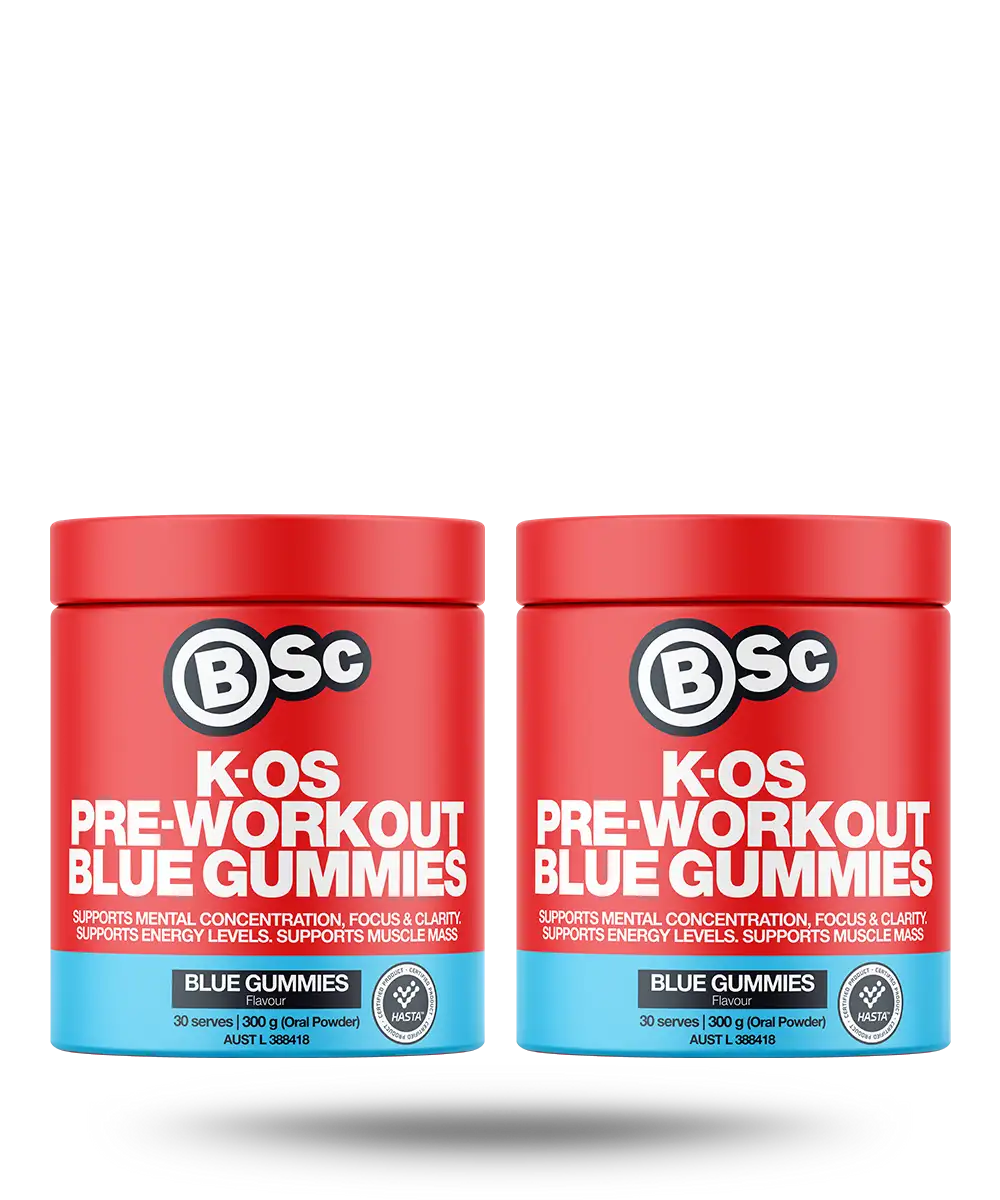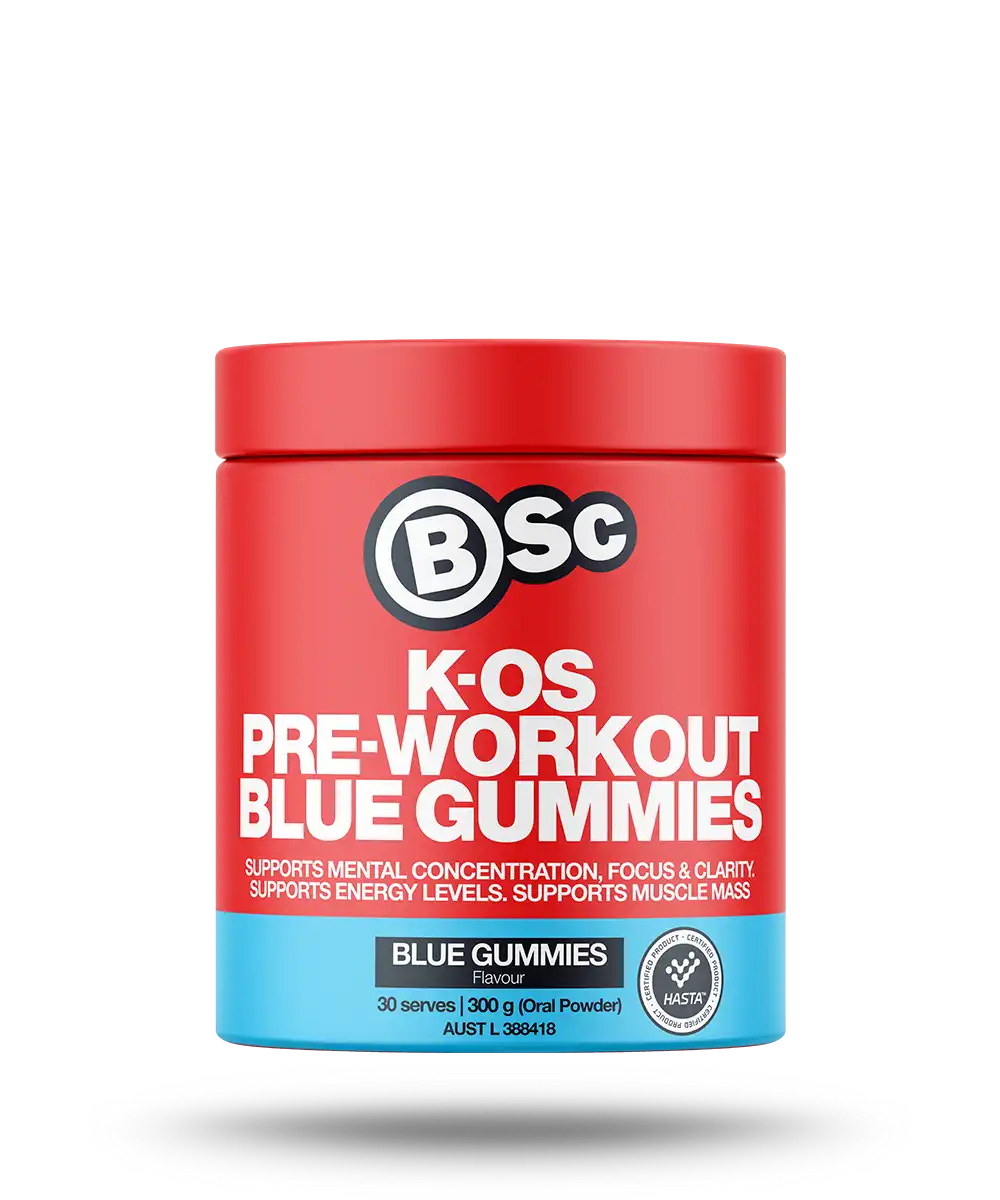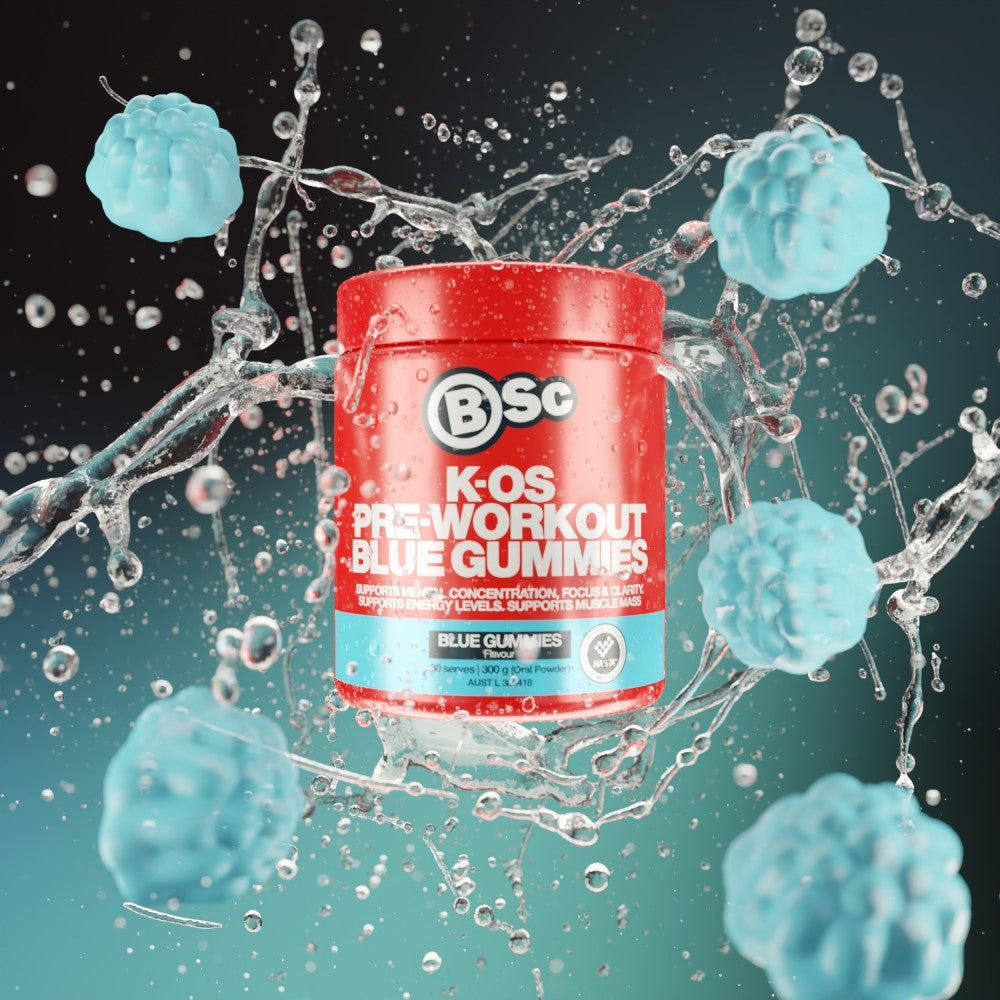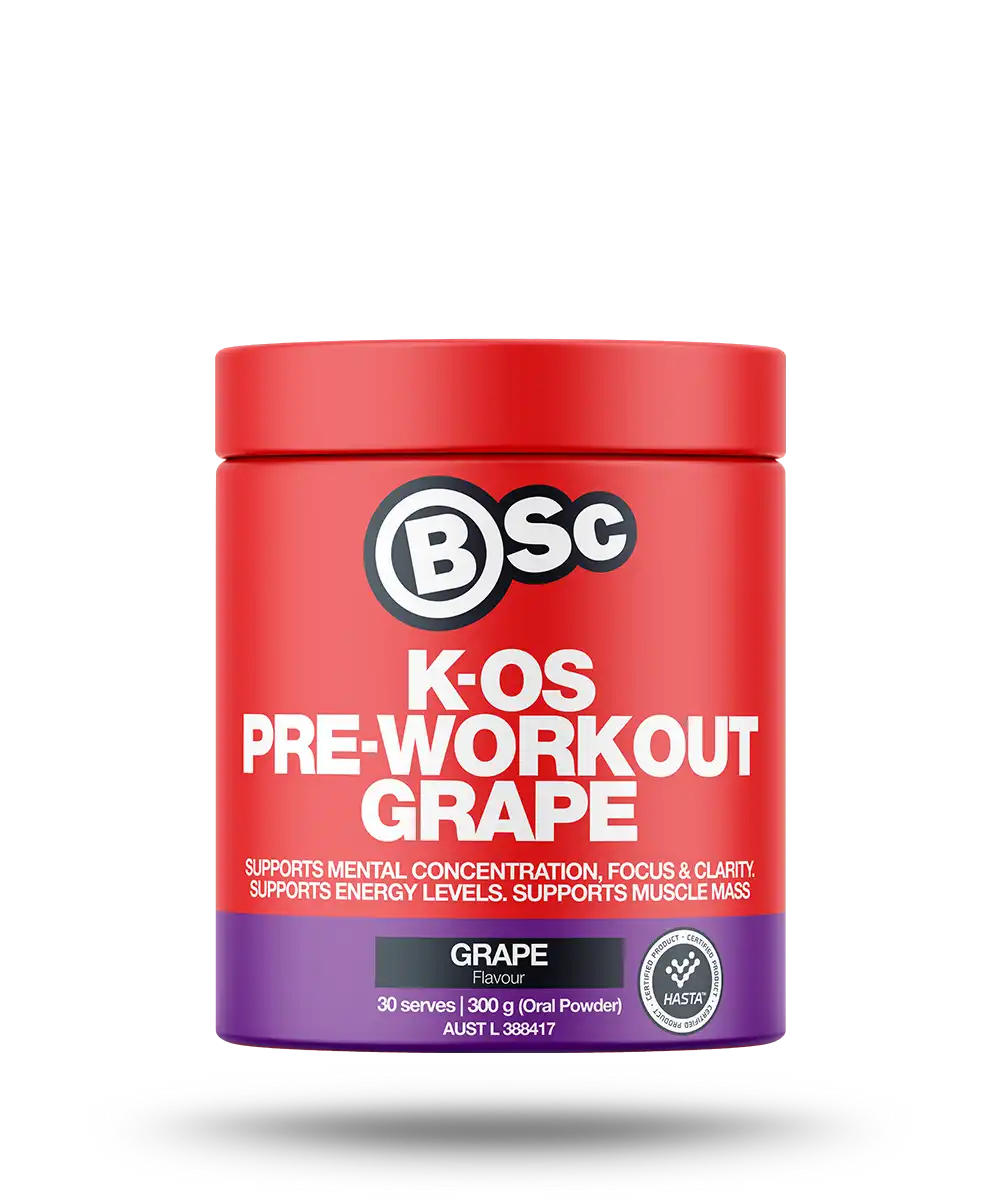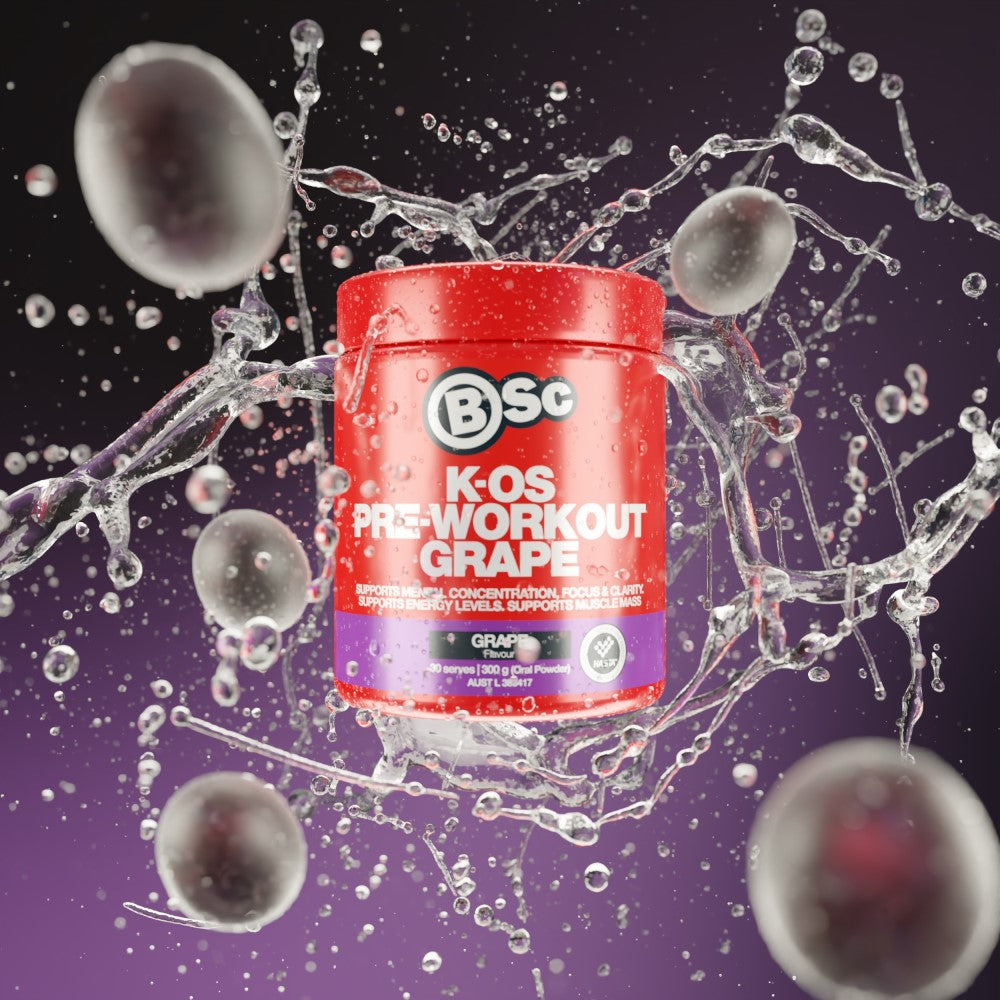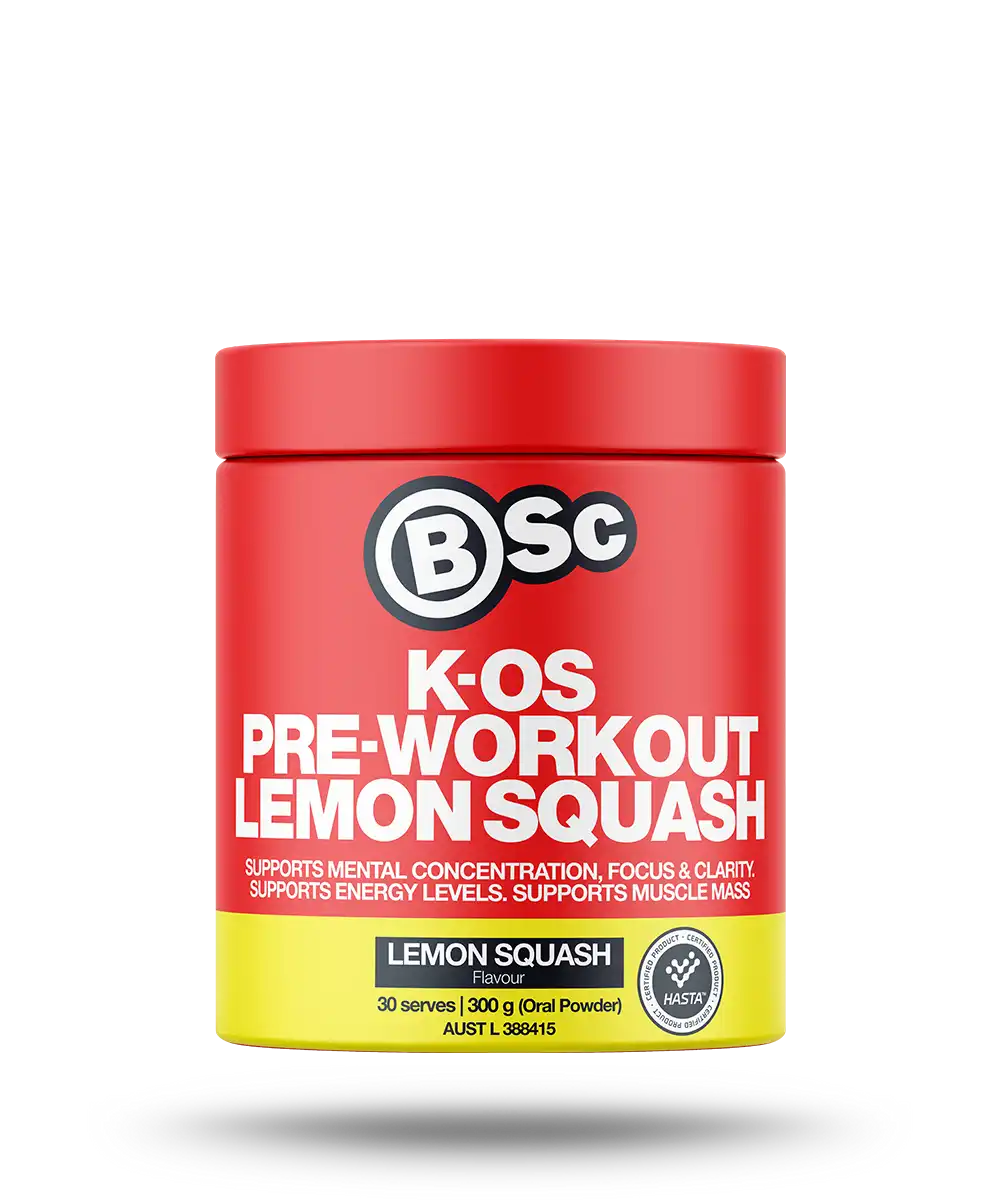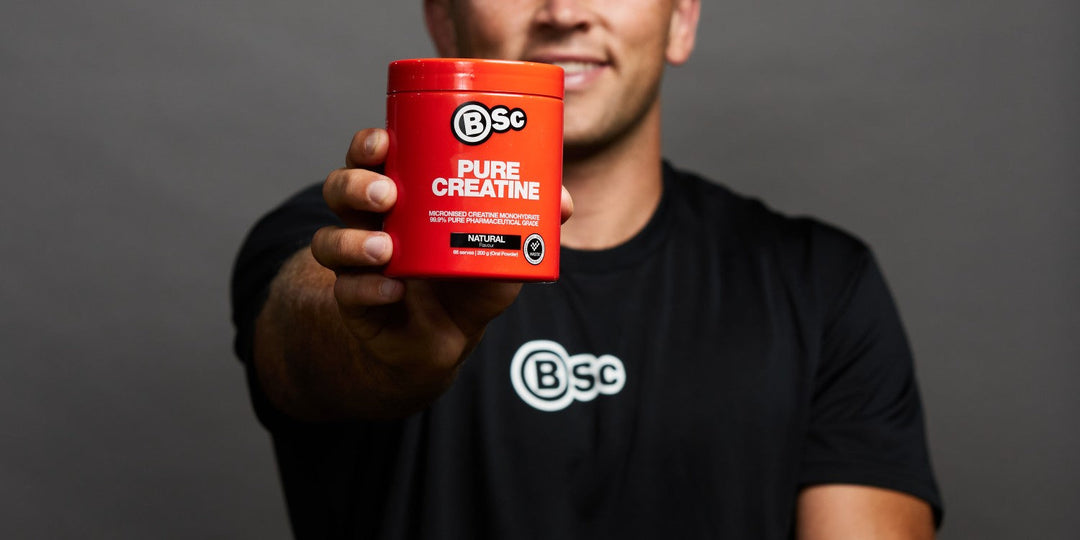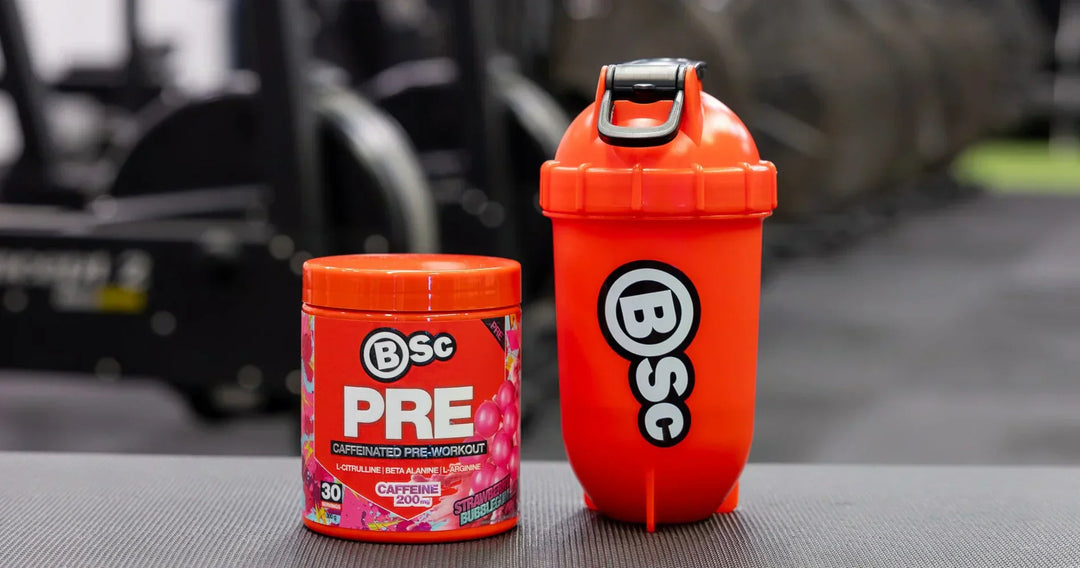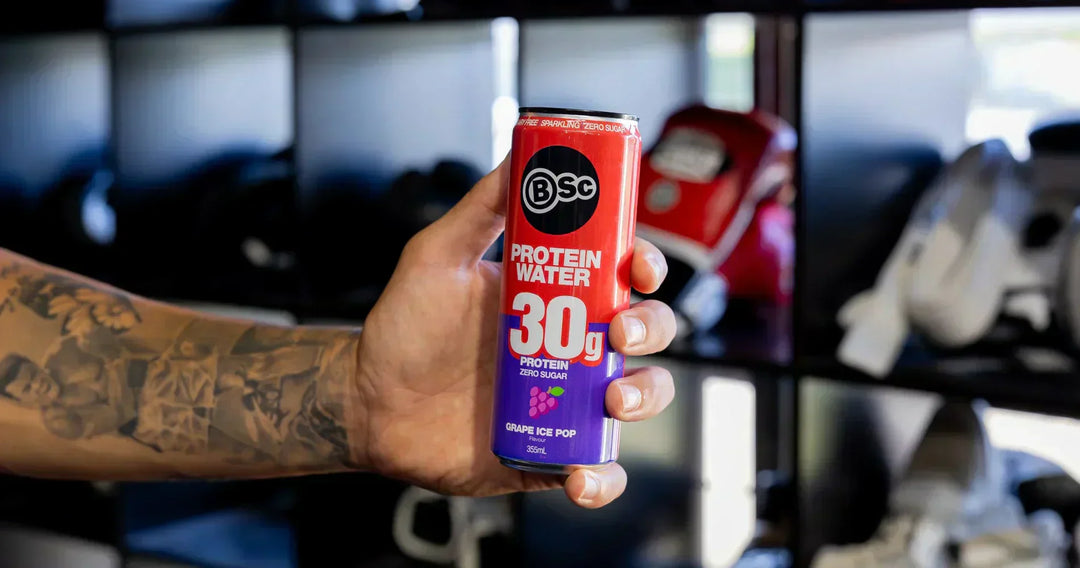Can You Take Creatine Even If You Don’t Work Out?
Creatine is the ultimate supplement for gym-goers and athletes. Shown to improve energy, strength, and athletic performance, creatine takes workouts to the next level.
But can you take creatine even if you don’t work out? We asked the experts.
Below, BSc Founder Greg Young and Head of the Nutrition Department Tatiana Marinho break down everything you need to know about creatine, from what it is and how to take it, to the ways in which it improves brain function for executives.

To start with the basics, what is the function of creatine phosphate and what does it do to our bodies?
Greg: It’s an amino acid, and it’s really designed around split-second energy. So, the beginning of a bench press, the beginning of a sprint, the beginning of getting out of your chair or running up the stairs. It’s about turning on that tap and giving you the energy to go.
Tatiana: Creatine increases the production of adenosine triphosphate (ATP) in the muscles and in the brain. ATP is the energy molecule in the body — it’s what we need to get our body going. We don’t move without ATP. Once ATP breaks down a phosphate group, you’re left with adenosine diphosphate or ADP, which is essential for muscle contraction. Creatine recycles ADP and converts it back into ATP, which releases energy through the body. As Greg mentioned, creatine is used for the first few seconds of an exercise. It increases speed and power by turning over that ATP energy molecule quicker.
Given creatine occurs naturally in our bodies and can be sourced from our diet, why use creatine supplements?
Tatiana: The research shows that supplementation makes a great deal of difference. While you can get creatine from your diet, we’ve found it isn’t enough to have an impact. Your body is getting rid of creatine through urine quicker than it can use it. Supplementation increases the creatine stores in the muscles and brain, so when you need it, you have that stock there rather than just having the baseline amount. It is produced naturally by the body in very small amounts and you can get it from your diet in very small amounts, but what has shown to be most effective is actually taking a creatine supplement.
How and when should creatine be taken by gym-goers and athletes? Are there any do's and don’ts we should be aware of?
Tatiana: That’s the thing with creatine — it’s really easy to take. You can take it before your workout, after your workout, with breakfast, or with dinner — it’s about consistency more than anything else. As long as you stay consistent it will work well. The one thing we say about taking creatine is to try and take it with carbohydrates and electrolytes. They will help the muscles and the brain properly absorb creatine. If the creatine isn’t absorbed properly, your body will get rid of it through urine.
Greg: So, when you add a carbohydrate to creatine it’s like a taxi rank at Kings Cross at 2:00 am; everyone’s waiting there, ready to go. The way to take the product is definitely with a carbohydrate source (known as a creatine transporter in the industry). What you’re trying to do by taking creatine with carbs and electrolytes is promote cell volumisation, which means to maximize the volume of fluids in the muscles.
Tatiana: With creatine supplementation, the body’s uptake of sodium, magnesium, and calcium also increases by up to 40%. Creatine helps to absorb those nutrients into the muscles instead of having them expelled through the urinary tract.

Can you take creatine even if you don’t work out, and what would the physiological benefits be if you’re not taking creatine to assist in intense workouts?
Greg: Yes, you absolutely can. When people say to me ‘I don’t work out,’ they still go for walks or runs, they still do all these other things — they just don’t go to a gym and work out. Creatine is still useful for these everyday exercise activities.
Tatiana: That’s exactly what I was going to say. Obviously, exercise is important for other health reasons. Even if you only exercise a little bit — whether you’re taking your dog for a walk or heading up and down the stairs — that’s already going to increase the uptake of creatine in the muscles and brain. So, you can definitely take creatine if you don’t go to the gym or if you’re not trying to get ‘big’. For people who don’t work out, the benefits are mainly that creatine will give you that energy boost for any day-to-day movement, and will also improve brain function. It’s also a really powerful antioxidant, so it can help with muscle and brain recovery, and slow down the aging process.
What is the relationship between creatine and brain health?
Greg: Creatine is really good from a nootropic perspective, by which we mean brain health. Its benefits are both physical and mental.
Tatiana: Creatine is really good for mental performance. The energy molecule formation that happens in our muscles happens in our brains as well, but our brains burn through it a lot quicker than our muscles because we use our brain constantly — even when we’re sleeping. Creatine has been shown to improve memory, performance, and intelligence scores. That’s why we say it’s a nootropic as well. There’s been a lot of research around creatine assisting people with neurological diseases because creatine also increases the level of dopamine in the brain. So, you’re happy and smart with creatine!
How might a creatine supplement benefit executives or people in fast-paced working environments?
Tatiana: For executives or people in fast-paced workplaces, I believe that taking creatine with breakfast — to ensure you’re getting those minerals and carbohydrates in with it as well — is a great way to start your day. You’ll be making the most of the improved brain function that comes with taking creatine. So you might take 1 – 2g in the morning, then say you hit a bit of a wall in the afternoon, you take it again with a snack for another boost.
Greg: I’m actually doing that at the moment, and I just feel better. When you get older, standing up hurts! That’s where creatine comes in.
Tatiana: And that’s where those antioxidant properties I was talking about come in. It’s really going to slow down that stress on the body. As we age, the body hurts because of all those oxidative molecules, and creatine will help with that. It works in the same way for the brain.
Greg: When we’re looking at executives these days, they’re the 8-hour athlete. You don’t come to work and sit in the corner and take a snooze. You are hammered all day long, so from the perspective of being an executive and feeling good during the day, creatine’s great.
Tatiana: Exactly. We all know the feeling of finishing a workday and being — even if you haven’t exercised that day — completely exhausted. I personally get more tired from working most days than training 6 hours a day. This mental fatigue affects your body, and the creatine comes along not just to improve your energy levels, but also to help that recovery so the next day you’re ready to work again.
How does taking creatine benefit people over 40 who may not engage in gym workouts or intensive exercise?
Greg: For someone hitting the 45, 50, 60 age range — we get a bit saggy, so creatine is going to fill those muscles up and make them look fuller. Even if you’re not going to the gym but you’re taking creatine with carbohydrates and water, that cell volumisation will happen and you will look like you’ve got more muscle, rather than saggy skin.
Tatiana: There’s a lot of research about maintaining the muscle mass and bone density that you start to lose after your 40s. We’re still looking into whether creatine actually increases bone density, or if it’s protecting muscle mass which then protects bone density. But regardless, we’ve found that for people aged 40+ starting to lose muscle, creatine really helps to maintain muscle mass and bone density.
At what age can you take creatine? Are there any age groups that shouldn’t be taking creatine?
Greg: From a legally formulated sports food perspective, 3g a day is the maximum amount of creatine you can take and it shouldn’t be taken by anyone below the age of 16. At BSc, we definitely wouldn’t be recommending creatine for anyone under 16 — there are so many other things younger people can look into, such as getting their training, macros, and basic protein intake right.
Tatiana: Yes, we only recommend creatine for people 16 years and over. Because creatine is filtered through the kidneys, we’d also recommend that elderly patients with any kidney issues should consult their medical practitioner before taking creatine.
What are the side effects of taking creatine?
Greg: There is some research behind creatine causing kidney issues, but that has been mainly reported in older populations. Unless you’re predisposed to any kidney issues, it is a very safe supplement to take and is one of the most researched supplements on the market.
Tatiana: With elderly people, we are conscious about creatine supplementation because, as you age, the kidney filtration process starts to slow down. Having said that, we have not identified any issues in healthy elderly people taking the recommended 3g daily dose of creatine. So, with the amounts that we’re looking to use for supplementation, even in the elderly population, we haven’t had any problems. There have been a few study cases of people who had issues with creatine because they were cutting massive amounts of weight over a very short time period, and taking huge amounts of creatine at the same time, which sent the kidneys into shut down. We definitely do not recommend doing this.
Is it safe to take creatine consistently over long periods of time?
Tatiana: Yes, absolutely, you can take 3g of creatine daily — that’s a maintenance dose. There are people who do the loading protocol, and I wouldn’t recommend that for any longer than a week. But if you are taking that 3g a day, that’s shown to be completely safe.
Greg: In terms of dosage - you can get full creatine stores within 30 days of taking a maintenance dose, or you can do it in 6 days with an increased daily dose, also known as a loading dose. That loading dose is usually used by people who are working heavily in the gym. As for regular everyday executives like myself, we can just take a maintenance dose every day so that we’ve got full creatine stores at all times.

It’s been said that people can experience weight gain after taking creatine. Is this something we should be concerned about?
Tatiana: The bottom line is that the weight increase you may experience isn’t fat gain - it’s actually water in the muscles. What happens is that carbohydrates are carried into the muscle with creatine, and carbohydrate molecules hold water. The carbohydrates are what your muscles use for energy, so it’s not like you can remove carbohydrates from the muscle. So that idea of ‘weight gain’ with creatine is actually incorrect - you’re just drawing water into the muscle, which makes your muscles look fuller and bigger. This process helps to promote not only muscle growth after a few weeks, but your muscles will also perform better because they’re hydrated. You might find a weight difference in the first few weeks while your body is loading up the muscles with creatine, and after that, you will stabilise.
Greg: The weight increase after taking creatine isn’t classified as body fat. It’s classified as lean muscle gains. Once you’ve fully loaded up your creatine stores over those first few weeks, you’re not going to put any more weight on. You will be at your natural best.
To read more from Greg and Tatiana about their work at BSc and beyond, head here.
You can shop for BSc's range of creatine products here.

